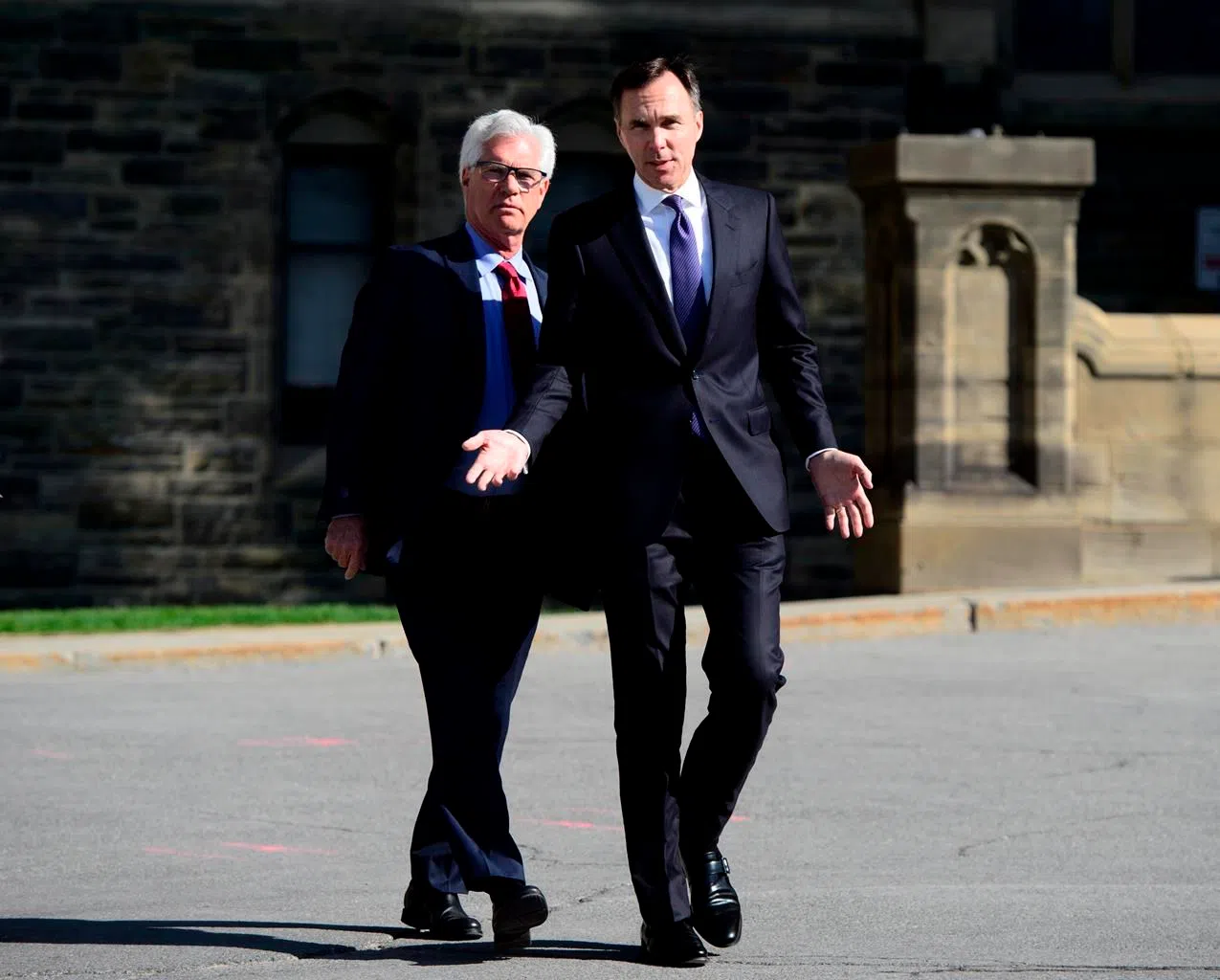
$4.5B Trans Mountain plan won’t mean Ottawa in pipeline business, says Morneau
OTTAWA — The federal Liberal government has no plans to drag Canada permanently into the pipeline business, Finance Minister Bill Morneau said Tuesday as he unveiled a $4.5-billion plan to buy the Trans Mountain pipeline and its various assets to ensure a planned expansion is able to proceed.
If Canada indeed ends up buying the pipeline, it will be solely to ensure its capacity can be tripled, allowing Canada to find new export markets for its oil resources, Morneau said — and that ultimately, the long-term goal will be to find a private-sector buyer to take it over.
“The Trans Mountain expansion project is of vital interest to Canada and to Canadians,” Morneau told a news conference in Ottawa.
“Our government’s position is clear: it must be built, and it will be built.”


